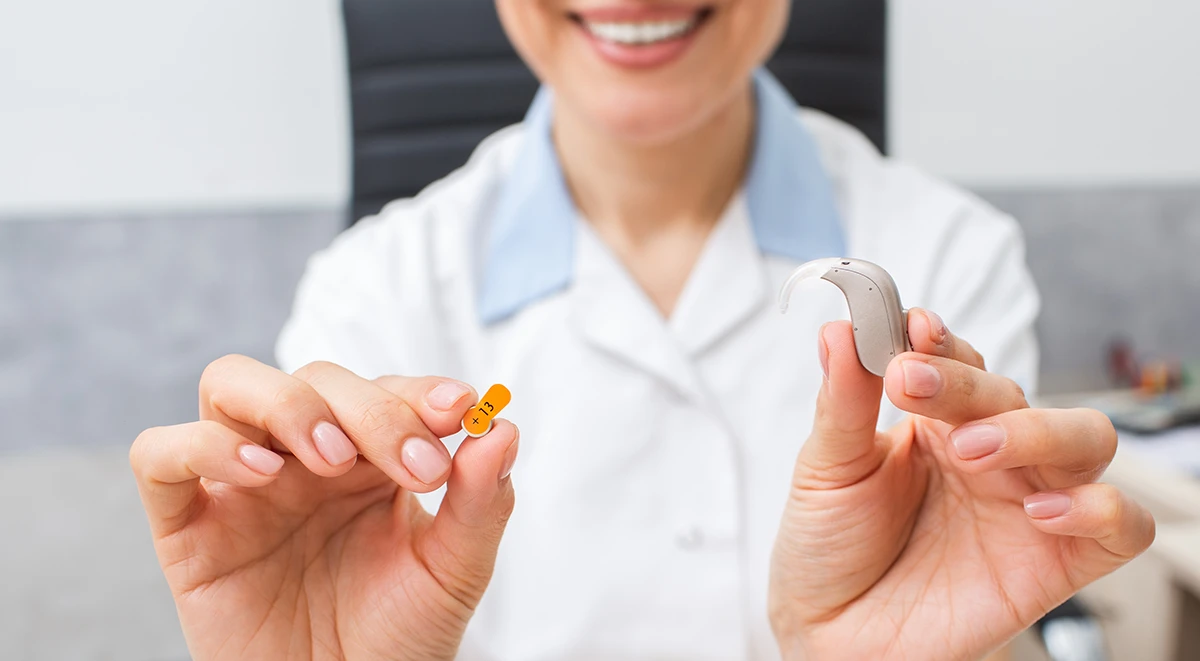
Hearing aids are powerful devices that offer significant advantages for individuals with hearing loss. However, their effectiveness hinges on something quite small: the battery. In this guide, we explore how long hearing aid batteries last, offering insights into factors that can affect their longevity, and provide practical tips for maximizing the battery life of your devices. We will also look at alternative options like rechargeable hearing aids, discussing how long their batteries last, how to charge them, and more.
Average Lifespan of Disposable Hearing Aid Batteries
The average lifespan of a hearing aid battery can range from 3 to 10 days. Factors like the type of battery, its capacity, how frequently the hearing aid is used, and the specific model of the hearing aid itself can all affect the lifespan of a battery.
For example, many behind-the-ear (BTE) hearing aid styles can accommodate larger batteries, which means they can last longer. On the other hand, smaller batteries commonly used in custom models tend to have shorter lifespans.
Hearing Aid Battery Sizes, Color Codes, and Lifespans
Hearing aid batteries are categorized into four standard sizes. Each size is represented by a specific color which also indicates the style of hearing aid they are typically used in. Here is an overview of each battery size, their color code, the types of hearing aids that use them, and their average lifespan:
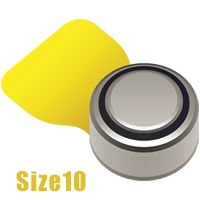
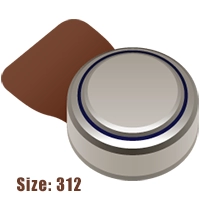
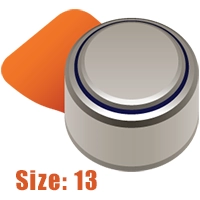
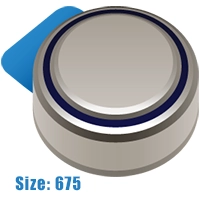
| Size | Color Code | Hearing Aid Styles | Average Lifespan |
|---|---|---|---|
| 10 | Yellow | CIC and IIC hearing aids | 3-4 days |
| 312 | Brown | Mini BTE, RIC, Mini RIC, CIC, ITC, and ITE hearing aids | 4-5 days |
| 13 | Orange | BTE, ITC, and ITE hearing aids | 5-7 days |
| 675 | Blue | BTE hearing aids | 7-10 days |
Tips to Maximize the Battery Life of Your Hearing Aid
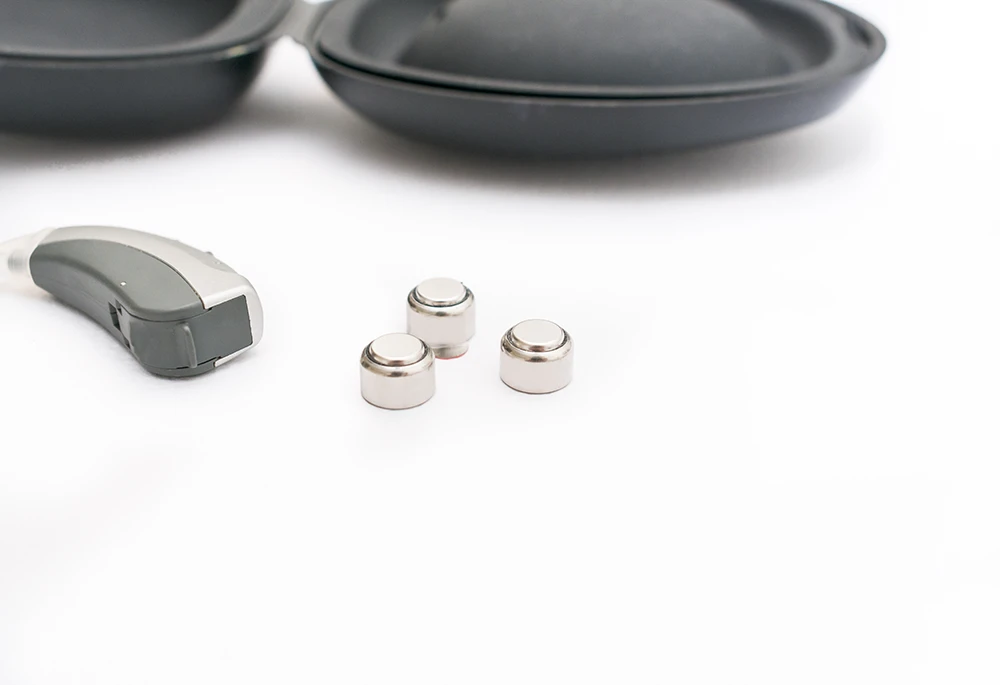
To maximize the battery life in your hearing aids, adopting simple habits such as turning them off when not in use can go a long way and save you some time and money in the long run. Below are some additional tips to help you get the most out of your hearing aid batteries.
Always Check the Battery Expiration Date
All batteries have a shelf life. The average shelf life of a hearing aid battery is typically four years. Older batteries or those that are close to or past their expiration date can produce less power and affect the performance of your hearing aids.
Before putting a new battery in your hearing aid, always check the expiration date first to ensure they are within their shelf life. If you have extra batteries on hand, it’s best to use the ones that are closer to their expiration date before using newer ones.
It’s also generally recommended to avoid stockpiling too many batteries all at once, and instead, maintain a supply that will last one or two months. This helps ensure that your batteries are fresh, and well within their optimal performance period.
Store Hearing Aid Batteries in a Dry, Room Temperature Place
It’s best to store hearing aid batteries in a dry, room temperature place and avoid humidity and moisture. Moisture can prematurely activate the battery, causing it to drain faster. Bathrooms, kitchens, and laundry rooms are all areas in the home that tend to have higher humidity and should be avoided for battery storage.
Similarly, while storing batteries in the fridge or freezer might seem like a way to extend their life, this is actually a myth. The truth is, refrigerator moisture can damage batteries, and very cold temperatures can also reduce the battery’s voltage, making it perform poorly in your hearing aid.
Always Wash Your Hands Before Changing Hearing Aid Batteries
Hearing aid batteries should always be handled with clean, dry hands. Dirt, oils, and other contaminants can transfer from your hands to the batteries and cause damage. To reduce the likelihood of contamination, always wash your hands before taking a new battery out of the packaging and putting it in your hearing aid.
Don’t Remove the Battery Tab Too Soon
Most hearing aids use zinc-air batteries, which are activated when exposed to air. This is why hearing aid batteries are packaged with a protective tab that helps prevent them from activating prematurely.
When the tab is removed too early, this can cause unnecessary battery drain, so make sure to only remove it when you’re ready to use the battery. This ensures that each battery retains its full charge until it’s needed.
WaitTwo Minutes After Removing the Tab to Put the Batteries In
After removing the tab, wait two minutes before putting the batteries in your hearing aids. This ensures that the battery is exposed to as much oxygen as possible, allowing the air to fully activate the battery so it can deliver its maximum potential charge.
Remove Hearing Aid Batteries and Keep the Compartment Open
Whenever you take your hearing aids out at night or for prolonged periods of time, it’s best to remove the batteries and keep the battery door open. This reduces the risk of moisture building up inside the battery compartment and causing damage. It also helps preserve battery life by ensuring it’s only in use when the hearing aid is active.
Use a Hearing Aid Dehumidifier Every Night
When it comes to hearing aid battery drain and damage, moisture exposure is a common culprit. Putting your hearing aids in a dehumidifier overnight with the battery removed and the compartment open ensures moisture that has accumulated throughout the day evaporates. This simple step helps preserve the lifespan of both your hearing aids and your batteries by keeping the battery compartment and other vital components dry.
Consider Upgrading to Rechargeable Hearing Aids
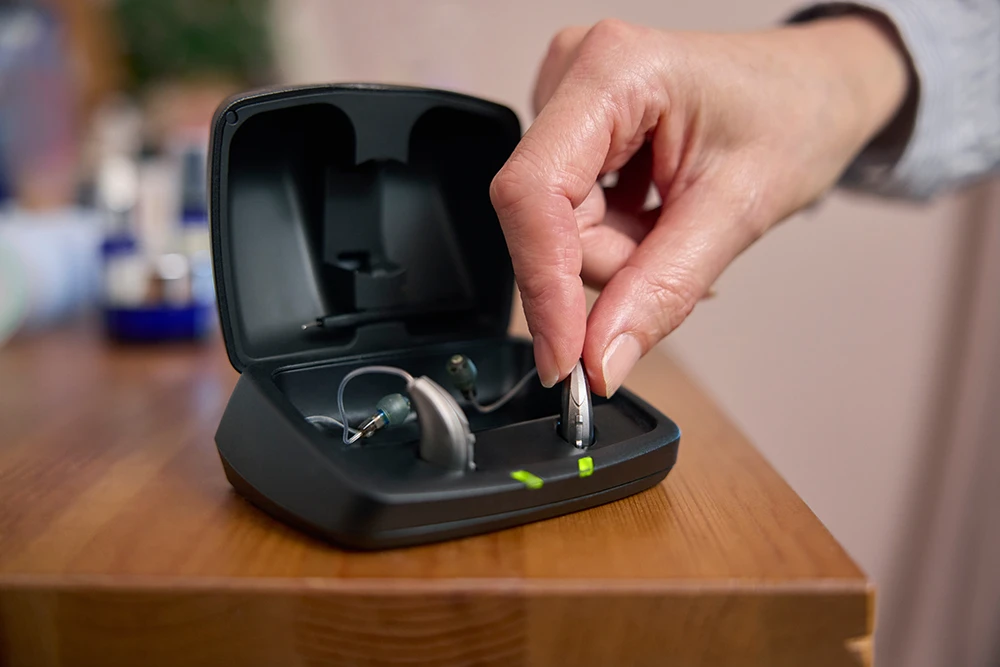
Advancements in hearing aid technology have made rechargeable devices a compelling option for many people. Rechargeable hearing aids eliminate the need for frequent battery replacements, providing convenience and streamlining daily use.
Instead of frequently replacing your batteries every 3 to 10 days, you can simply plug in your hearing aids overnight to charge them for the next day.
How Long Do Rechargeable Hearing Aids Last?
At full power, most rechargeable hearing aids tend to last anywhere from 20 to 30 hours. Some of the most advanced rechargeable hearing aids can even last up to 51 hours. This can vary depending on the specific hearing aid model, the type of battery, and device usage.
How to Charge Your Hearing Aids
Charging your hearing aids is as simple as placing them inside their charging station, dock, or charging case overnight. While you’re asleep, the batteries will charge, and they will be ready for use the next day.
Find the Best Hearing Aids for Your Needs, Lifestyle, and Budget
Understanding how long hearing aid batteries last and how to maximize their efficiency is a key part of managing hearing loss effectively. Various factors can influence the lifespan of hearing aid batteries, but by adopting these simple habits you can get the most out of your devices.
Ready to turn up the volume on life? From comprehensive hearing exams to personalized hearing loss care, our hearing care specialists are here to help. Schedule a hearing screening at an Audibel clinic near you today and take the first step towards better hearing!

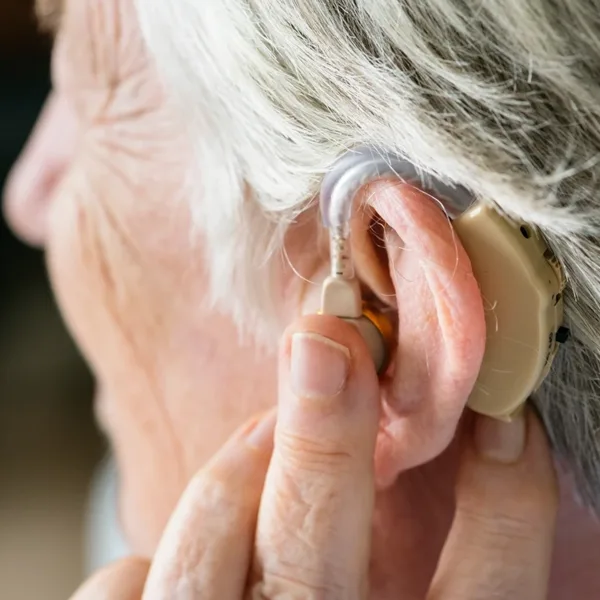
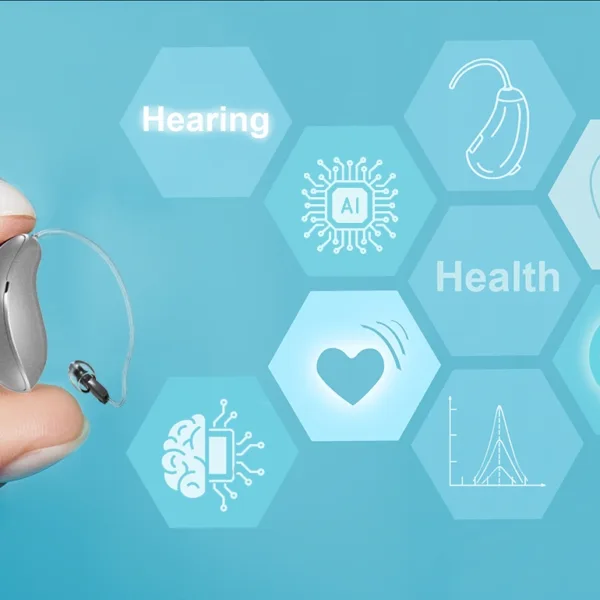
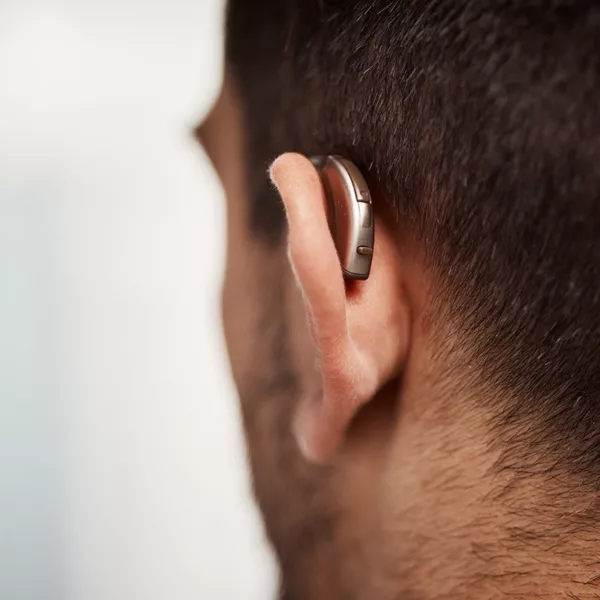



Have a question or Comment?